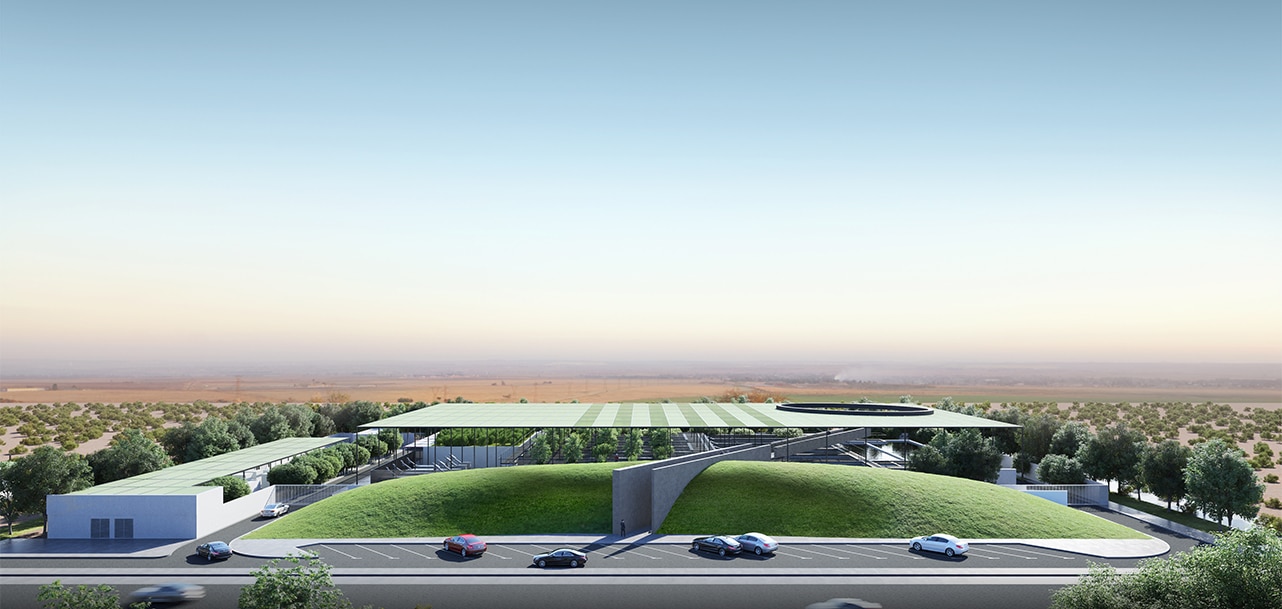Arada invests in R&D partnership with Biopolus, SRTIP and Metito to bring next-generation sustainable water treatment technology to the UAE
News: 17 April 2023
- Agreement introduces environmentally friendly biological engineering process that can help resolve water scarcity
- State-of-the-art R&D facility and treatment plant currently under construction in Sharjah
- Long-term goal is to turn Sharjah into a global hub for improved versions of the technology
Arada is investing in a major new research and development (R&D) facility in Sharjah, bringing a new form of sustainable water treatment to the UAE, and the wider Middle East, for the first time. The joint venture agreement with Hungarian water tech firm Biopolus, Sharjah Research Technology and Innovation Park (SRTIP) and Metito, a leading global provider of water management solutions, is designed to develop and implement upgraded versions of the existing Biopolus technology, allowing them to be patented, tested and integrated within projects in Sharjah.

The R&D facility is designed to be a living, learning laboratory that can serve as an inspiring and innovative space for students and researchers to study ecological engineering and circular economy principles in a practical and hands-on manner. The long-term goal for the facility will be to create an improved ‘Biopolus 2.0’ version of the technology, while also turning Sharjah into a global hub for the process.
As well as the R&D facility, the agreement will also result in the construction and operation of a water treatment plant that will treat, recycle and produce treated water to use for the irrigation of landscapes in both Aljada and SRTIP. The plant will use the Biopolus Metabolic Network Reactor (MNR) technology, a biological engineering process that mimics natural processes by using artificial root structures containing microbial biofilms to clean water rapidly, efficiently, sustainably and without the use of chemicals.

Ahmed Alkhoshaibi, Group CEO of Arada, said: “With COP28 being held in the UAE later on this year, we believe it’s important that private-sector companies commit to supporting the government by introducing greener and more sustainable technologies and processes wherever possible. This partnership is in line with one of Arada’s key goals: to be a leader in the field of sustainable development. Trees and green landscaping play a central role in all of Arada’s communities, and it’s vital that these areas can be nourished in a sustainable and environmentally friendly manner.”
HE Hussein Al Mahmoudi, CEO of Sharjah Research, Technology and Innovation Park, said: “Effective water reuse is of primary importance, especially in a part of the world where water scarcity is such a critical issue. We are delighted that Sharjah will now become a global hub for a technology that has huge potential to conserve this precious resource. We’d like to welcome Biopolus to the UAE, and to thank our valuable partners at Arada and Metito for their role in this critical partnership.
Fady Juez, Managing Director of Metito, said: “Our founding principles are Impact, sustainability and innovation and with this partnership we are aligning with our core commitments to the communities we serve. We look forward to bringing our high value engineering capabilities, our global experience and local presence and knowhow to this mix of synergistic partners. We see huge potential for this technology and its applications, not just for Sharjah but for the entire region. We must collaborate in advancing water solutions to meet the growing demands and the global supply challenges and this project takes us a step closer to creating a positive, lasting impact to our ecosystem”.
Istvan Kenyeres, Founder and CTO of Biopolus said: “As a biotechnologist and ecological engineer I have learnt how to design thriving and beautiful living systems to recycle our precious water, combining nature’s forces and human intelligence. The new facilities that we are building in Sharjah will not just demonstrate the full potential of this technology in a challenging climate but providing more: create the infrastructure and the partnership ecosystem for a significant impact on a global scale. We are also excited to work with our partners in the UAE to test new and exemplary ways of water-based urban circularity technologies and solutions.”
The modular, flexible and odour-free nature of the Biopolus technology means that each plant can be placed directly in any urban environment and can be designed in an attractive manner that blends in with its surroundings. As a result, the first plant in the Middle East is based on a 9,900 square metre plot on the boundary between SRTIP and the Aljada megaproject in Sharjah. Known as a BioMakery, the state-of-the-art Sharjah plant is characterised by its unique architecture and green and leafy exterior.
Construction on the first phase of the Sharjah plant is currently under way and is scheduled to be completed in April 2024, with US engineering giant Jacobs serving as lead consultant on the project. The first phase will have the capacity to recycle 5,500 cubic metres of water a day, with two further phases providing the capacity to recycle 16,500 cubic metres a day. Further plants are also planned to serve Arada’s other projects.
Over the long term, Arada and its partners hope to integrate a number of other processes into the Sharjah plant, including recycling, community functions and energy recovery technologies, helping it to become a local hub for the urban circular economy.
Since its foundation in 2017, Arada has launched three communities in Sharjah and one in Dubai, all of which have sustainable development components, including smart city technology, water treatment and waste management, integrated into their master plans. The developer also has developed the Manbat partnership with the UAE Ministry of Climate Change and Environment, which focuses on bridging the gap between Emirati farmers and local consumers, and supporting the UAE’s long-term food security goals.
